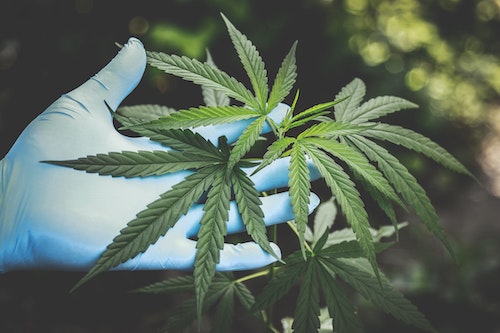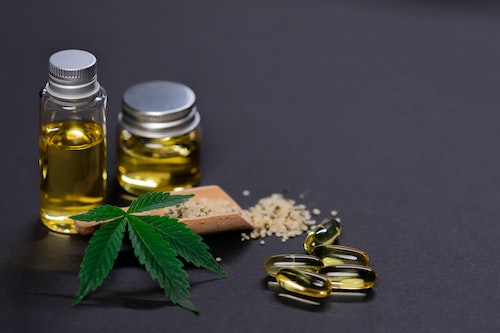
CBD, Hemp Seed Oil, And The Endocannabinoid System: How They Interact
CBD (cannabidiol) and hemp seed oil are two compounds derived from the hemp plant (Cannabis sativa) that have gained popularity for their potential health benefits. These compounds interact with the endocannabinoid system (ECS), a complex network of receptors and signaling molecules found throughout the body. Understanding the interaction between CBD, hemp seed oil, and the ECS is crucial in comprehending their effects on the body and overall well-being. The Endocannabinoid System (ECS) is a regulatory system that plays a vital role in maintaining homeostasis, or balance, in various physiological processes. It consists of three main components: endocannabinoids, receptors, and enzymes. Endocannabinoids are natural molecules produced by the body that bind to cannabinoid receptors, known as CB1 and CB2 receptors. These receptors are found in different tissues and organs, influencing various functions, such as pain perception, mood, appetite, immune response, and inflammation.
CBD interacts with the ECS in a unique way. Unlike THC (tetrahydrocannabinol), the psychoactive compound in cannabis, CBD does not directly bind to CB1 and CB2 receptors. Instead, it modulates the ECS by influencing the activity of receptors and enhancing the effects of endocannabinoids. CBD can inhibit the breakdown of endocannabinoids by blocking the action of certain enzymes, thereby prolonging their activity and increasing their impact on the ECS. By enhancing the function of the ECS, CBD may help promote balance and well-being in the body. For example, CBD’s ability to reduce the breakdown of anandamide, an endocannabinoid known as the “bliss molecule,” may contribute to its potential anti-anxiety and mood-enhancing effects. Additionally, CBD’s interaction with CB2 receptors on immune cells may play a role in its anti-inflammatory properties, making it a potential therapeutic option for inflammatory conditions.
Hemp seed oil, on the other hand, does not directly interact with the ECS in the same way as CBD. It is important to note that hemp seed oil contains negligible amounts of CBD and THC, if any, and primarily consists of essential fatty acids, vitamins, and minerals. While hemp seed oil does not directly influence the ECS, its nutritional content may indirectly support the system’s function. The essential fatty acids found in hemp seed oil, such as omega-3 and omega-6, are crucial for the production of endocannabinoids in the body. These fatty acids serve as the building blocks for the synthesis of endocannabinoids, and an adequate supply of essential fatty acids is essential for a healthy ECS. By incorporating hemp seed oil into the diet, individuals may support the ECS indirectly by providing the necessary nutrients for optimal endocannabinoid production.
When CBD and hemp seed oil are used together, they may create a synergistic effect that enhances their potential benefits. The essential fatty acids from hemp seed oil can act as carriers for CBD, facilitating its absorption into the body. Additionally, the presence of hemp seed oil’s nutrients may complement CBD’s effects on the ECS, providing a more comprehensive approach to promoting balance and well-being. One of the most significant areas where the interaction between CBD, hemp seed oil, and the ECS shows promise is in managing inflammation and pain. CBD’s anti-inflammatory properties, combined with the nourishing effects of hemp seed oil’s essential fatty acids, may offer a potent solution for individuals dealing with chronic pain or inflammatory conditions like arthritis.
Furthermore, the combination of CBD and hemp seed oil in skincare products may also utilize the ECS to promote healthier skin. As mentioned earlier, CBD’s anti-inflammatory and antioxidant effects can help soothe skin conditions, while hemp seed oil’s essential fatty acids contribute to maintaining the skin’s natural moisture barrier and promoting skin health. Together, they create a powerful duo for supporting overall skin wellness. It is essential to mention that while the interaction between CBD, hemp seed oil, and the ECS holds promise, more research is needed to fully understand the extent of their combined effects. Additionally, the effects of these compounds may vary from person to person based on individual factors such as genetics, metabolism, and overall health.
In conclusion, CBD and hemp seed oil interact with the endocannabinoid system in different ways, providing a multifaceted approach to supporting health and well-being. While CBD modulates the ECS by influencing receptors and endocannabinoid levels, hemp seed oil indirectly supports the ECS through its nutritional content. When used together, CBD and hemp seed oil may create a synergistic effect, enhancing their potential benefits in managing inflammation, promoting skin health, and supporting overall balance in the body. As research in this area continues to evolve, we can expect to gain deeper insights into the intricacies of this interaction and its impact on human health.



